Libya floods: At least 30,000 displaced, with fatalities expected to rise significantly
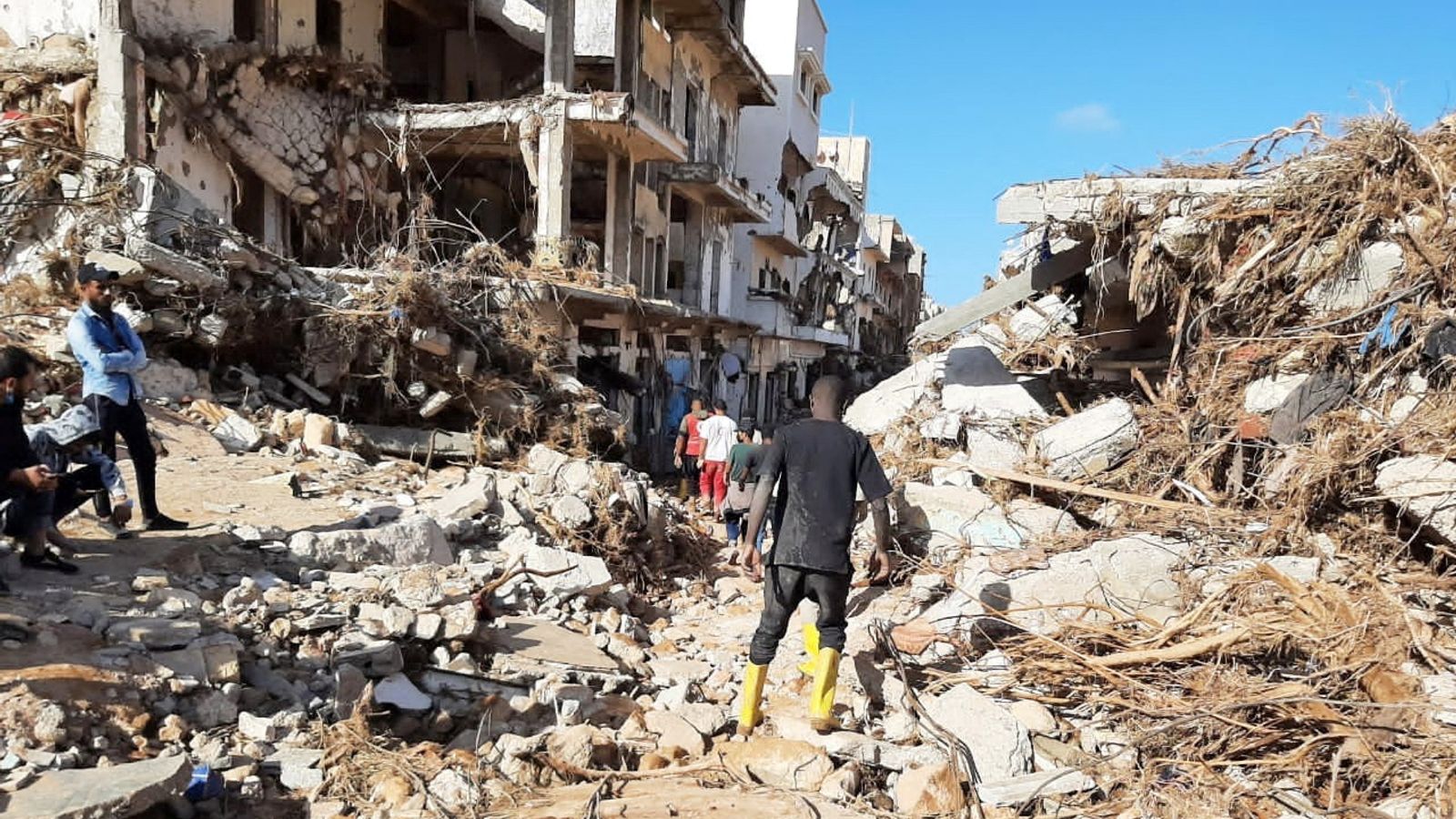
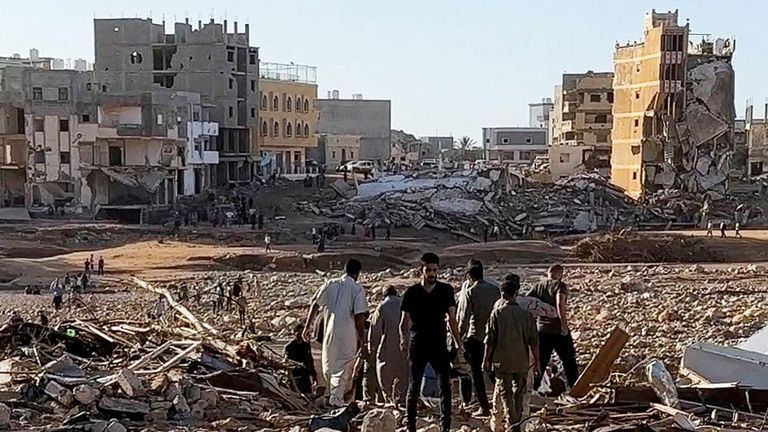
At least 30,000 people have been displaced in the town hardest hit by floods in Libya.
Health officials said the death toll in the city of Derna has risen to more than 5,100 – while a minister has said 5,300 bodies in the country’s east have been recovered.
The number of fatalities is expected to rise significantly.
Officials are appealing for international help, and have warned Libya doesn’t have the necessary experience to deal with a disaster of this scale.
What caused flooding in Libya?
Storm Daniel caused significant damage to roads and telecoms networks on Sunday – with strong winds and sudden heavy rainfall devastating the port city of Derna – about 560 miles (900km) east of the capital, Tripoli.
The “sea is constantly dumping dozens of bodies”, Hichem Abu Chkiouat, minister of civil aviation in the administration that runs eastern Libya, said, adding that reconstruction would cost billions of dollars.
“We have counted more than 5,300 dead so far, and the number is likely to increase significantly and may even double because the number of missing people is also thousands,” he said.
Please use Chrome browser for a more accessible video player
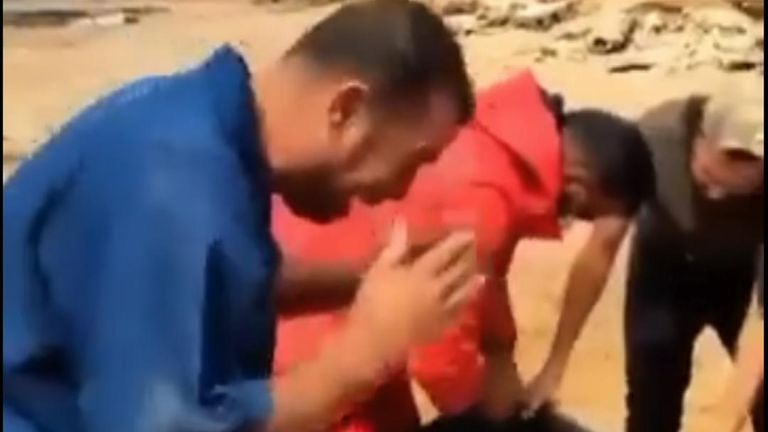
0:32
Libya: Grieving father mourns son
Footage of one man, described by the charity Libyan Red Crescent Society as a grieving father, showed his distress as his son’s body was recovered from a collapsed building and prepared for transportation.
Advertisement
“May God make your reward great. Remember God. There is no God but God. May God grant you patience,” one of the rescuers said.
The father replied: “Keep them there, don’t carry them at all. I will do it.”
“Our hearts are with you, we’re all with you,” the rescuer said.
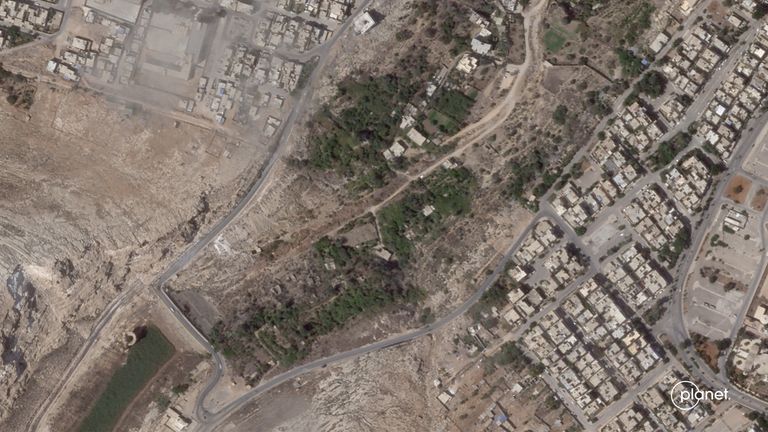
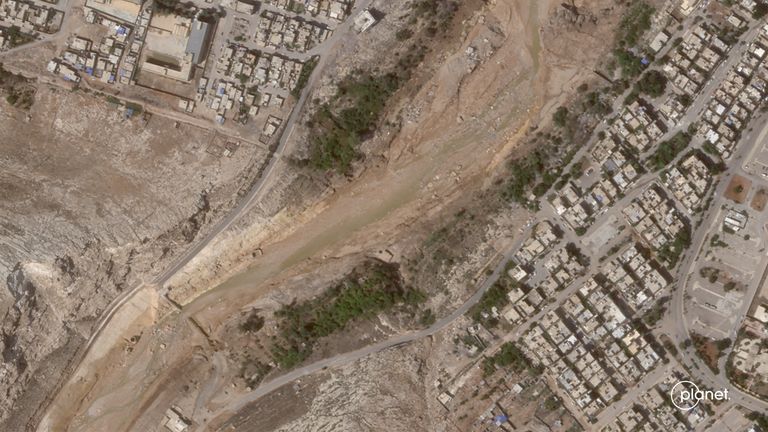
As Storm Daniel pounded the coast on Sunday night, Derna residents said they heard loud explosions when dams outside the city collapsed.
Floodwaters washed down the riverbed, which runs from the mountains through the city and into the sea.
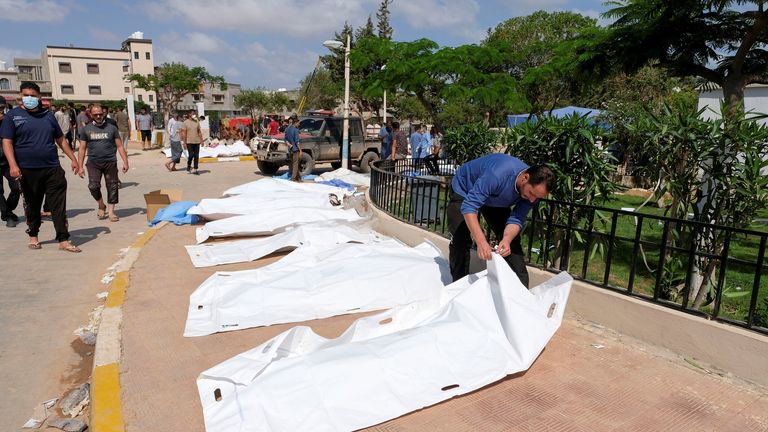
Waves measuring seven metres (23ft) high “destroyed everything in their path”, Yann Fridez, head of the delegation of the International Committee for The Red Cross in Libya, told France24.
“The human toll is enormous,” he said.

International correspondent
It has taken time but it’s now quickly becoming clear to the outside world that Libya is facing a significant humanitarian catastrophe.
Storm Daniel has already caused chaos in southern Europe but the flooding in the east of the country may be even worse.
The disaster has been compounded by the problems Libya is already facing – years of war since Muammar Gaddafi was ousted have left the fractured nation in no place to deal with this terrible climatic event.
We don’t really know the numbers of dead – it’s definitely in the thousands but that tragic figure could rise much higher.
Aid agencies are pointing to the collapse of two dams in the coastal city of Derna as the reason for the worst of the devastation.
At least 10,000 people are missing according to the Red Crescent.
Reaching the areas worst affected is not easy – the swollen rivers and intense flash flooding have swept away roads and homes.
There are reports entire communities have been washed away into the sea.
Any relief effort will be also complicated by the political divisions that exist.
An internationally recognised government sits in the capital Tripoli but the east is administered – where Derna is located – by a different authority.
There are signs of aid moving from the capital eastwards, but for people in the flooded areas it cannot come quick enough.
It may be days before we know the true extent of this disaster and they get the help they need.
Rescue teams are still trying to recover bodies scattered in the streets and under rubble in the city, as at least 10,000 people were still missing, according to Tamer Ramadan, Libya envoy for the International Federation of Red Cross and Red Crescent Societies.
Read more from Sky News:
North Korea supports Russia’s ‘sacred fight’ against the West
Ukraine strikes Russian submarine and landing ship
Ahmed Abdalla, a survivor who joined the search and rescue effort, said they were putting bodies in the garden of a local hospital before taking them for burial in mass graves at the city’s only intact cemetery.
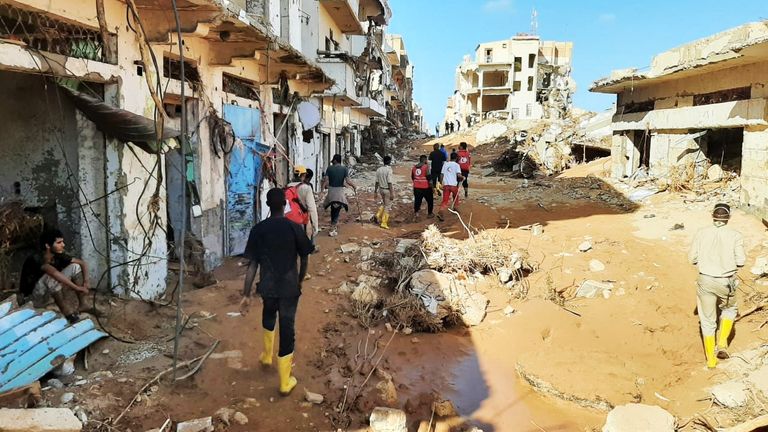
Libya’s neighbours, Egypt, Algeria and Tunisia, as well as Turkey and the United Arab Emirates, have sent rescue teams and humanitarian aid.
British Foreign Secretary James Cleverly said on Tuesday: “My thoughts are with all those affected by the catastrophic flooding in eastern Libya. The UK stands ready to provide assistance. We are in contact with the Libyan authorities and the UN to urgently assess what support we can provide to help the Libyan people at this tragic time.”
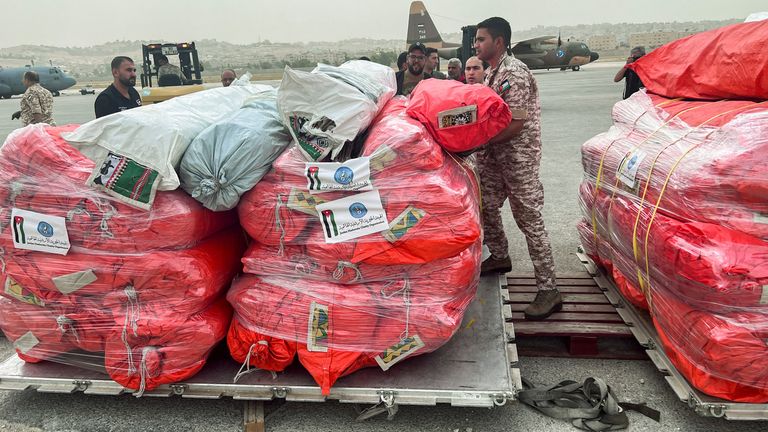
President Joe Biden also said the United States is sending emergency funds to relief organisations and coordinating with the Libyan authorities and the UN to provide additional support.
But the arrival of aid has been hampered due to the destruction of roads leading to the city. Bridges over the river Derna that link the city’s eastern and western parts have also collapsed, according to the UN’s migration agency.